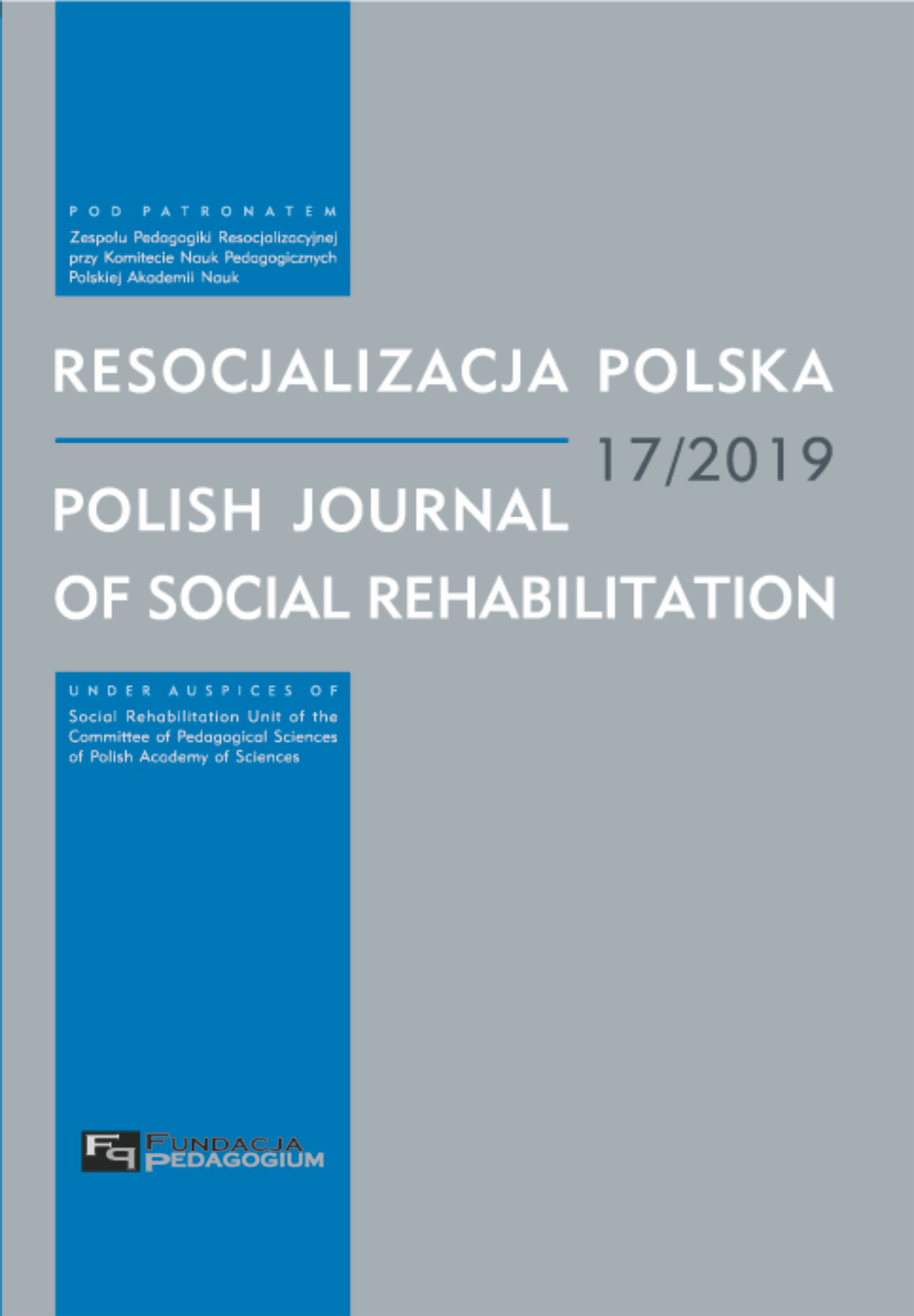Institutional cooperation as a factor determining
the effectiveness of probation officers
Institutional cooperation as a factor determining
the effectiveness of probation officers
Author(s): Marek HeineSubject(s): Criminology, Penology
Published by: Fundacja Pedagogium
Keywords: Social rehabilitation; effectiveness; professional competences; probation officer
Summary/Abstract: The author points out that widespread critical evaluations of social rehabilitation carried out under probation result mainly from the adoption of inadequate evaluation criteria for this process. The author makes an attempt to analyse the typical meanings of the notion of social rehabilitation effectiveness, and critically examines common limitation of the meaning of this term in order to achieve a specific, usually difficult to measure, result. The author suggests that the evaluation of the effectiveness of social rehabilitation process should focus on the analysis of the degree of utilization of the opportunities that occur during its implementation. The measure of the social rehabilitation process effectiveness should be the degree of optimization of diagnostic, guardianship, counselling, educational and therapeutic activities undertaken by probation officers, and not only the result obtained from the application thereof. In his deliberations, the author devotes particular attention to the analysis of factors determining the necessity of court probation service’s cooperation with state, local government and social institutions in the process of carrying out professional tasks.
Journal: Resocjalizacja Polska
- Issue Year: 17/2019
- Issue No: 1
- Page Range: 33-45
- Page Count: 13
- Language: English

